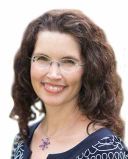
Relationships
Why Relationships Should Begin With the Head, Not the Heart
Surprising research supports an old-fashioned model of courtship.
Posted November 10, 2014
I’m in an arranged marriage—kind of. And I recommend it for everyone.
The idea began for me after I crashed and burned in my own love life—and after I read research comparing the outcomes of arranged and chosen marriages.
In most of the world, even today, families use matchmakers and scour their social networks for acceptable mates for their adult children—introducing their kids to the few candidates who meet their standards, but then letting the intended couples decide whether they ring one another’s bells. Parents typically choose someone as similar to their child and their family as possible, doing all the head work so their adult child can choose from that small pool based on heart.
One famous study conducted in Jaipur, India, compared couples there who married for love—"the Chosen"— to those who wed for family—"the Arranged." As you’d expect, Chosen couples reported being significantly more in love at the start of the marriage than the Arranged. But by the five-year mark, the figures had reversed—with the Arranged couples reporting being in love at the same levels as newlywed Chosen couples had, and the Chosen couples now declined to the newlywed levels of the Arranged couples.
And at the 10-year mark? The effect had doubled. Arranged marriages just kept getting better.
Does that mean that love’s not important in arranged marriage cultures? Hardly. It just means that here, we expect love before marriage; and there, afterward. Here, we expect love to conquer all; there, they expect similarity to pave the way for love.
And, factually speaking, they’re usually right.
As an Indian physician told me: “You see I am a doctor. Nobody chained me to a sink. I could have chosen my own husband, but I was busy and thought my parents would do a better job. When they introduced me, I was attracted to my husband. They’d done all the ground work so it could work.”
She and her husband are similar, compatible—and with that, plus the initial spark, in place, they’re in love and going strong after more than 18 years.
I’m not suggesting that you let your family arrange your marriage. If you’re not from such a culture, it could be intensely weird, and daunting for your parents. But I am suggesting we would be wise to emulate arranged-marriage cultures by valuing our heads as much as our hearts—starting with logic and ending with love. To that end:
- Define your standards, making sure they’re realistic and vital;
- Only date those who seem to meet them—ditching those who lack your required qualities, no matter how appealing they might otherwise seem; and
- Let yourself fall for someone from the small group that fits.
In other words, arrange your own marriage. You can do it with the help of the Internet, of course—and recent research suggests that online dating may be associated with longer, happier marriages than those that are launched in person.
I used this science myself, and followed these guidelines. Vic and I met online in 2007 and were married in early 2008. Just as the research suggests, we are more rather than less in love today. Yes, I may have started out primarily using my head. But it turned into all heart.
The upshot? Marry for compatibility and love, not one or the other. But start with your head, like people have through most of history and across most of the world, forming the most lasting unions.
Duana C. Welch, Ph.D., is the author of Love Factually: 10 Proven Steps from I Wish to I Do, releasing on January 7, 2015.

